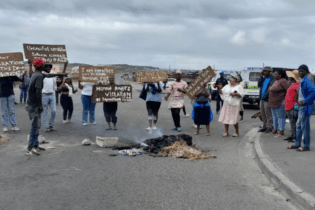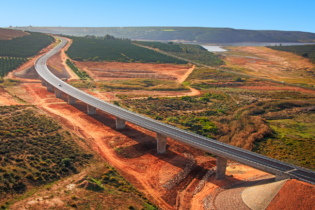Eskom might face difficulties in raising funds for its coal-fired projects in future if environmental organisations kept challenging decisions to fund coal plants, Econometrix’s chief economist, Azar Jammine, said yesterday.
Jammine was reacting to the release of a report by the World Bank on Friday, which showed that water and environmental concerns regarding the coal-fired Medupi power plant were valid. The World Bank’s inspection report shows that significant environmental, social and climate impacts were not adequately addressed by the bank when it awarded a $3.75 billion (R31 billion) loan to Eskom for the construction of Medupi. The multilateral lender said its inspection panel found that there had been specific instances of non-compliance or inconsistency in areas which included water and air externalities. Environmental organisations such as groundWork and Earthlife Africa have been involved in monitoring and challenging the World Bank’s loan to Eskom for the development of Medupi from the beginning. The organisations asked for the World Bank investigation on behalf of the community living near the plant’s site outside Lephalale in Limpopo. GroundWork said it had not seen the report before it was released by the bank on Friday and was now reviewing it. But Earthlife Africa already had a “leaked” inspection report in December. The organisation called for the World Bank to act urgently and withdraw the loan, on the grounds that it contradicted the stated intention of the funding.Jammine said if the World Bank backed out of funding coal projects in the country, this would cause a problem.
“Our big competitive advantage is that we can source coal very cheaply compared to other sources, such as nuclear. What this is doing now is threatening the competitiveness of our electricity supply,” he said. The World Bank approved the Eskom loan on 8 April 2010, with the objective of enhancing energy security while supporting South Africa’s long-term carbon mitigation strategy. But the bank had received a request for inspection before awarding the loan, on 6 April 2010. The request focused on a specific component of the project and the bank’s board authorised a full investigation three months later. This was the first investigation relating to the application of the World Bank’s Operational Policy 4.00, which deals with “piloting the use of borrower systems to address environmental and social safeguard issues in bank-supported projects”. Earthlife Africa said the illegal sand mining used for the construction of Medupi had affected the water flow from the local river. It said the region was already struggling with water scarcity. GroundWork said the communities situated next to coal-fired power stations did not even have access to electricity and had to suffer from the health impacts. Source: iol





